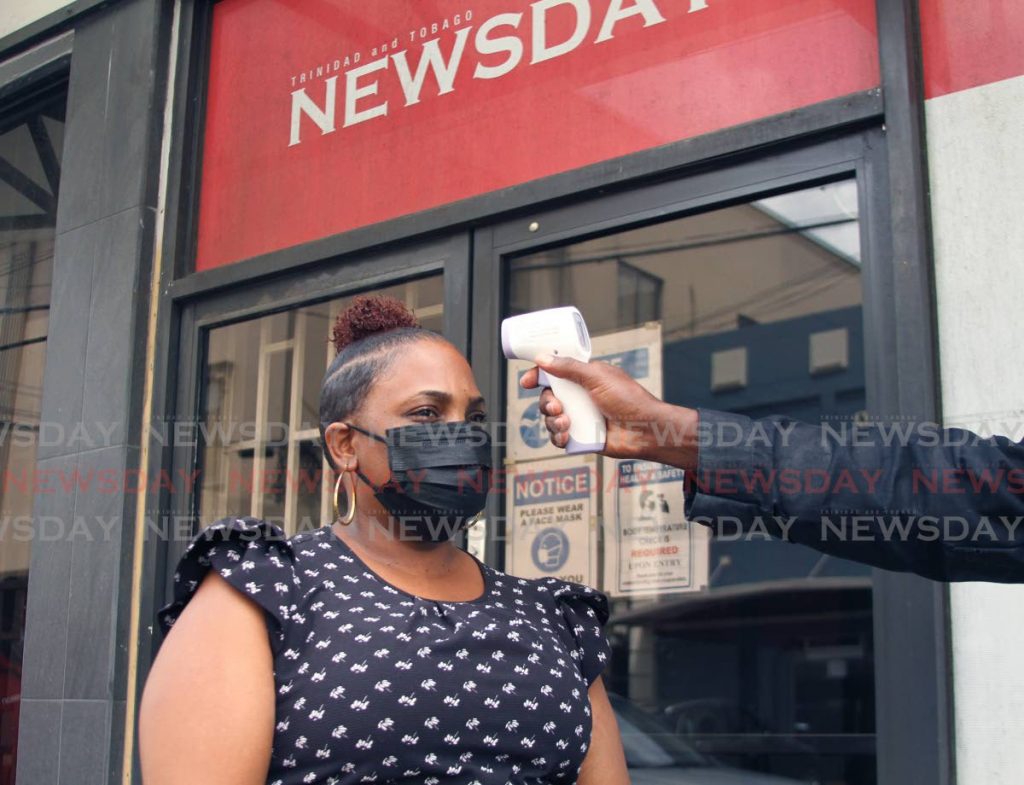Mandatory covid19 vaccines: public health vs individual freedom

Prof Rose-Marie Belle Antoine
I am repeatedly asked by various stakeholders whether covid19 vaccination could be made mandatory, so today I offer some initial thoughts.
This is not a clear-cut legal question and there are good arguments on both sides. There is no law, precedent or policy which governs the matter at present.
Labour law, public health and human-rights issues intermingle and ultimately, what is reasonable and in the majority interest would likely prevail.
Legislation compelling vaccination
Mandatory vaccination is, of course, an abrogation of individual rights, but it must be balanced against the collective rights of others – like public health and, importantly, the protection of the individual worker himself or herself in a very high-risk environment.
No right is absolute, and law does not, or should not exist in a vacuum. It is likely that a state will have a wide margin of appreciation in formulating such laws.
Caribbean constitutions have different formulae for laws that limit rights, but a common denominator, whether specifically stated, or through elucidation by case law, is reasonableness. Thus, the TT Constitution, under Section 13, permits such abrogations unless shown “not to be reasonably justifiable in a society that has a proper respect for the rights and freedoms of the individual.” It requires the special three-fifths majority of Parliament.
See too, Jamaica, Section 13 (2), where limitations “may be demonstrably justified in a free and democratic society.” This limitation is to be read within the context of the broader public interest, often specifically stated, such as in the Grenada constitution, Section 1, which speaks to “limitations” of rights to protect the “public interest” or Section 11, Barbados, and Section 14 of the Jamaica constitutions respectively.
In Guyana’s Constitution, Section 40 (2) proclaims that rights limitations are “designed to ensure that the enjoyment of the rights and freedoms of any individual does not prejudice the rights of others or the public interest.”
Mandatory vaccination utilised to protect others could easily meet these thresholds in the current pandemic.
Public health and personal liberty
Importantly, several Caribbean constitutions expressly provide avenues for the state to limit individual rights where public health is at risk as is reasonably required, and this may justify mandatory vaccines.

The rights to not be arbitrarily searched, freedom of conscience, freedom of expression, movement, and protection from discrimination are all rights subject to the interest of public health. See eg the Barbados Constitution, Section 19 (6): “Nothing…done under…any law shall be held to be inconsistent with or in contravention of this section to the extent that the law in question makes provision – which is reasonably required – (i) in the interests of…public health; and section 17(1) on arbitrary search. See also sections 7 of the Grenada and St Lucia constitutions.
Moreover, the right to “personal liberty,” which would ordinarily protect against such compulsion, is specifically compromised. For example, several constitutions, such as section 3(1)(g) of the Grenada Constitution, Section 13 (1) g) of the Barbados Constitution and Section 3 of the St Lucia Constitution, make that right subject to the state taking measures to prevent the spread of “infectious or contagious disease.”
Public-health rationales are therefore to be seen as legitimate objectives to justify limitations of rights.
The way the wind is blowing
While mandatory vaccination is yet to be tested in Caribbean courts, in this environment of a pandemic with fast-growing covid19 rates and deaths, the trend is to lean in favour of public-health imperatives and not prioritise individual rights. This is the reason, eg, why the courts have not upheld challenges by people who were locked out of their own countries against their individual rights of citizenship.
It is also the rationale for current regulations which abrogate our rights to freedom of movement. Already Grenada is leaning toward mandatory vaccination.
A recent landmark judgment from the European Court of Human Rights (ECHR), Vavřička and others v. Czech Republic (2021) ECHR 116, also legitimises laws mandating vaccines in a public health crisis, opening the door to mandatory covid19 vaccines.
The ECHR ruled that a compulsory national childhood vaccination programme against hepatitis, etc, did not violate the European Convention on Human Rights Article 8 rights to respect for private and family life rights where voluntary vaccination did not prove sufficient to protect the public against serious disease.
In this context, compulsory vaccination can be considered "necessary in a democratic society." Significantly, the judgment emphasised science-based knowledge over fear and stigma, just as courts did in the HIV pandemic. This is likely to be persuasive, given the similarity of the EU Convention with Caribbean constitutions.
Notably, TT and other Caribbean countries already mandate vaccines for children entering schools, so that the bar is not so high.
Already, Italy has enacted mandatory covid19 vaccine laws.
Non-state actors
Where the state is reluctant to impose mandatory laws, could employers, institutions hospitals, etc, impose requirements for mandatory vaccinations?
With the exception of Jamaica, human-rights considerations do not apply to non-state actors like employers etc, since our constitutions only protect against human-rights abuses by the state. However, other principles of law, such as administrative and labour law, will be pertinent in the absence of legislation.
First, the oft-touted argument that because there is no law which mandates the vaccine, a requirement mandating it cannot be made, is a misleading and simplistic one. Law is often enacted to prevent acts or omissions, not necessarily to prescribe them. Where the law is silent, the assumption is that it is permissible, unless adjudicated otherwise. Law would be never-ending were it to regulate every aspect of life.
There are already many requirements that we accept despite there being no legislation to regulate it. For example, most workplaces, universities, etc, already have much latitude in terms of entry and require medicals before hire, or admission, despite there being no law.
Indeed, for that matter, no law requires employers to mandate specific qualifications, but they do! Similarly, many health-care institutions already require staff to be vaccinated for known contagious diseases.
The real issue
The real issue is whether such a requirement for mandatory vaccination would be reasonable.
Given the constitutional leeway in favour of public-health imperatives described above, I suggest that employers could justify a requirement in a pandemic context, at minimum where the workplace is a high-risk environment, such as health care, or essential services.
This is reasonable both to protect other employees, the interacting public and even the employee himself or herself.
Analogies with immigration requirements mandating yellow fever and other vaccines, or airlines and universities requiring covid19 vaccines before travel or admission, also point to the likelihood that such compulsion may not be unreasonable. In fact, there is already a de-facto mandatory requirement in existence in several sectors.
I note the president of the Industrial Court’s view in a newspaper article that imposing such a requirement could breach contractual terms and conditions of work. This was not a judgment, and one does not know how the court will rule should the issue come before it and arguments assessed.
While I agree that employers cannot normally unilaterally change employee terms and conditions, there are exceptional circumstances which permit it, such as where the work environment changes fundamentally and modification is needed to protect the enterprise itself. Think for example, of employees hired as typists who were forced to operate in a computer-based workplace as technology progressed. While the employer may be required to retrain, such modifications will and have been allowed.
Given the weight afforded to public-health rationales in our legal system, it is likely that this would not be considered to be an unreasonable modification of terms and conditions, particularly given the general “fit for work” medicals already accepted.
Notably, the president felt it would be acceptable for future employees to be so mandated, a view I support.
Equally too, the employer can be held to task for failing to take steps to protect the worker and co-workers. This would be part of the evaluation of what is reasonable and fair. In a high-risk environment, it may be irresponsible and even negligent to permit employees to work without a vaccine.
Fair penalties for refusal
Yet penalties for failure to meet mandatory requirements might be nuanced in this context. Would it be fair to terminate such an employee, or is it more reasonable for alternative arrangements to be imposed, such as strict safety requirements (PPE, eg), isolation, home-work arrangements, etc, so as to retain humanity in the work sphere?
In assessing reasonableness, whether in relation to the private sector or the state, there must also be legitimate exemptions. Religious objection is relevant. as would be medically sound health risks. In such circumstances stringent safety requirements (PPE, etc) would have to be substituted.
In sum, at least while the pandemic rages on, there may be good grounds for imposing mandatory vaccination, at minimum for particularly high-risk workers, in the public interest.
Of course, all of the above is moot if we cannot obtain sufficient vaccines for the population!
Prof Rose-Marie Belle Antoine is dean of the Faculty of Law and professor of labour law and financial law at UWI, St Augustine



Comments
"Mandatory covid19 vaccines: public health vs individual freedom"